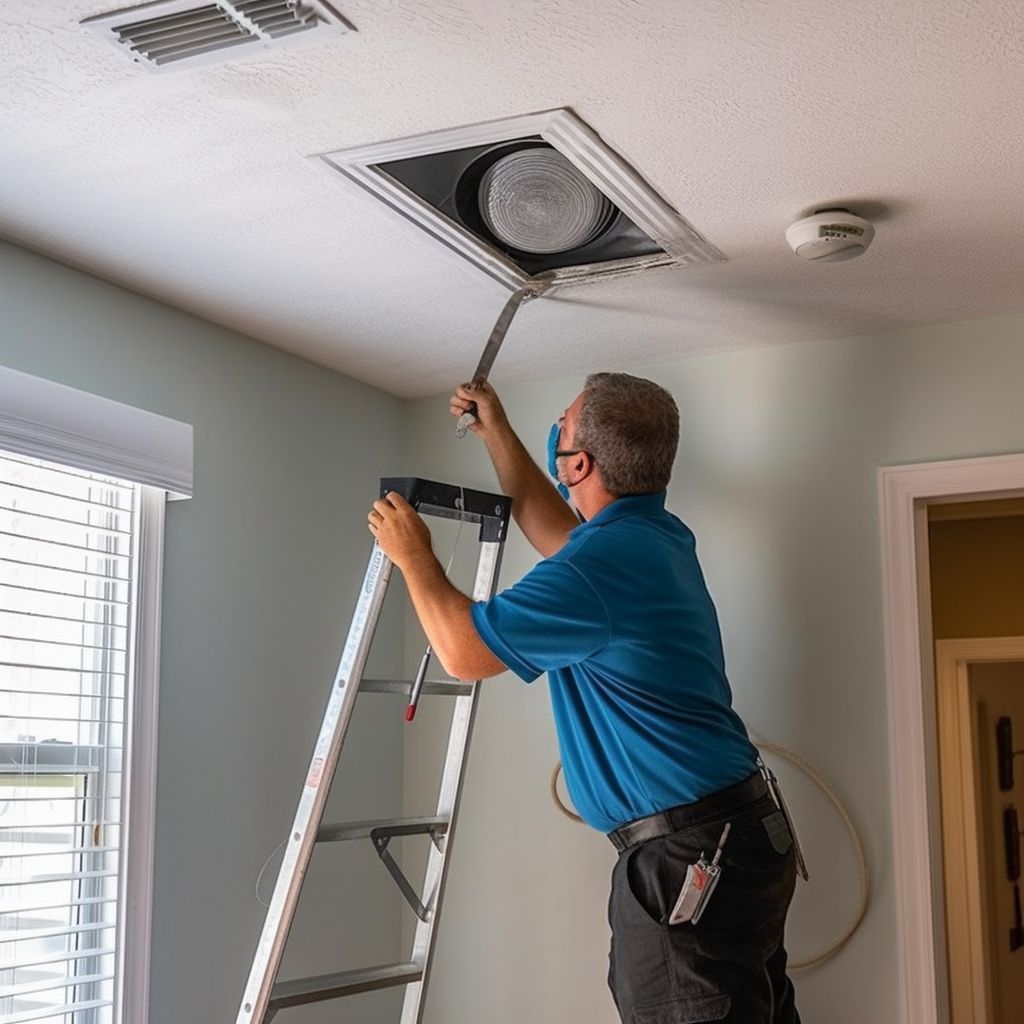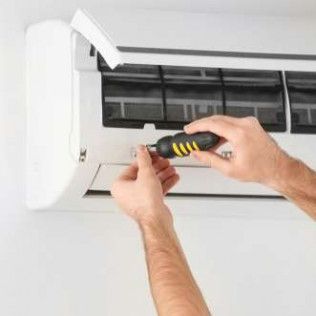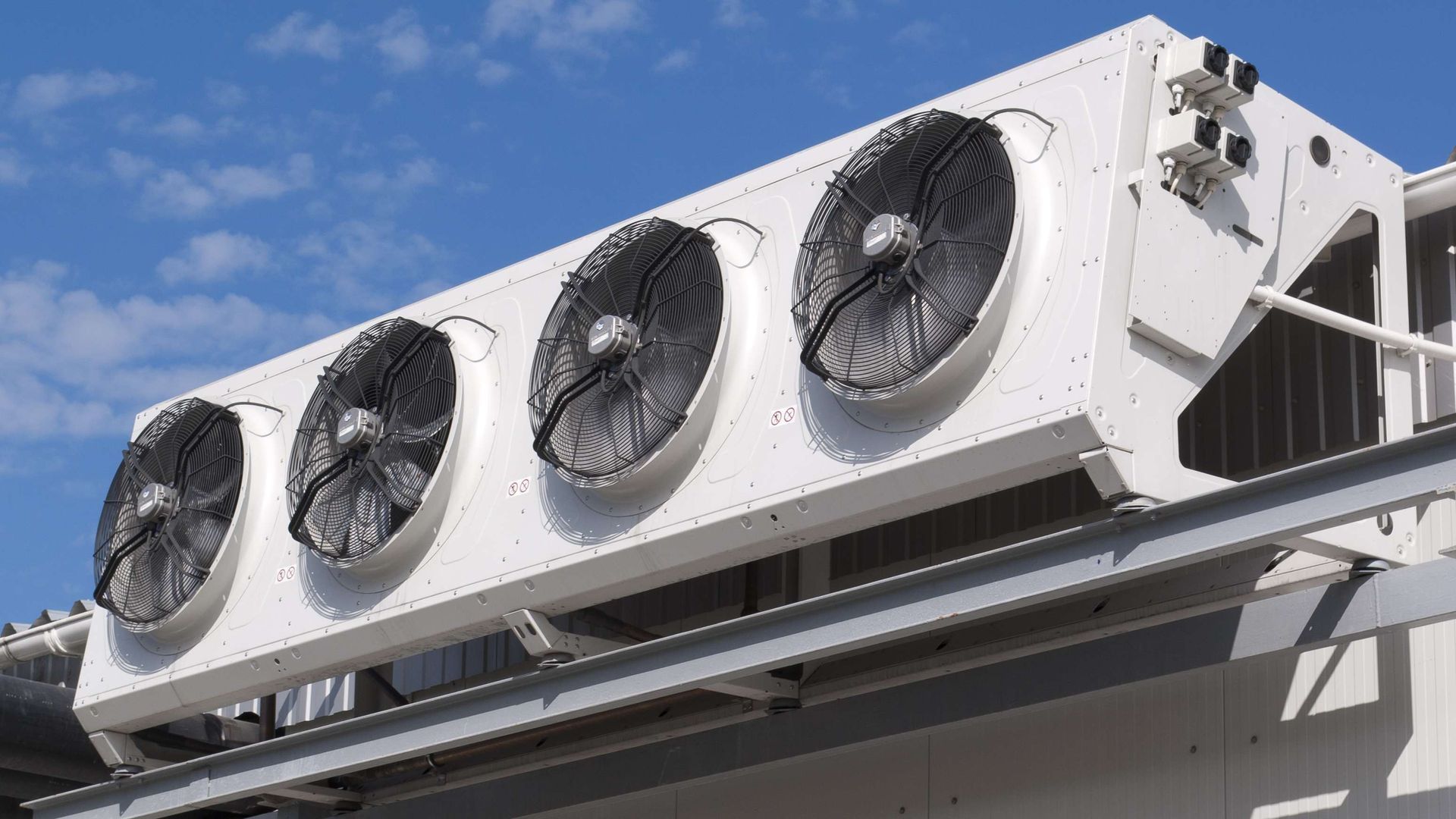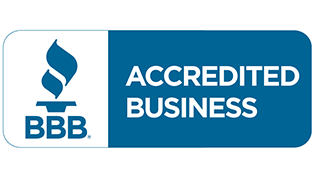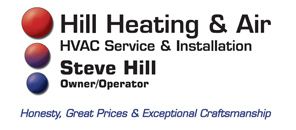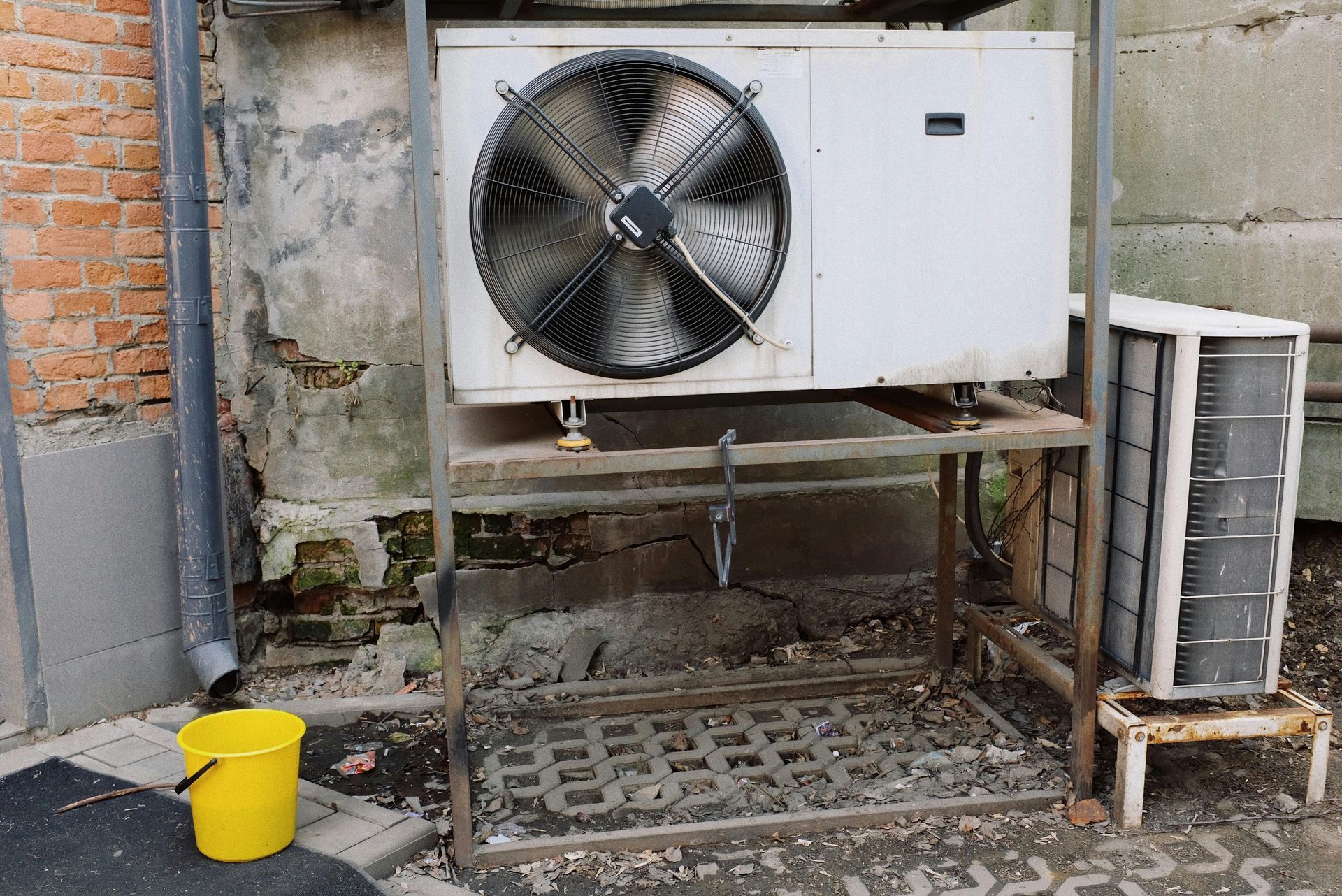
Is Your HVAC System Ready for Utah’s Changing Seasons?
Utah’s weather isn’t mild—it’s extreme. Blazing summers and freezing winters push your HVAC system to the limit. If your system isn’t ready, you could end up with sky-high energy bills, poor indoor air quality, or a complete breakdown when you need it most.
The best way to avoid costly repairs and stay comfortable year-round is with seasonal HVAC maintenance. Regular tune-ups keep your system running efficiently, prevent sudden failures, and help you save on energy costs. Skipping maintenance can lead to bigger problems, like frozen coils in winter or an overworked AC in summer.
This guide breaks down signs your HVAC system needs attention, simple DIY checks, and why professional maintenance is a must in Utah. By the end, you'll know exactly what to do to keep your home comfortable no matter the season.
Signs Your HVAC System Needs Immediate Maintenance
Your HVAC system won’t always quit suddenly. Most of the time, it gives warning signs before breaking down. Catching these early can save you from expensive repairs or total system failure.
1. Weak Airflow or Uneven Temperatures
If some rooms feel too hot while others are freezing, your HVAC system isn’t working efficiently. Blocked vents, dirty filters, or failing components could be the problem.
2. Strange Noises or Smells
Banging, rattling, or screeching sounds mean something is loose, broken, or failing. A musty or burning smell could be a sign of mold, electrical issues, or overheating parts.
3. Skyrocketing Energy Bills
If your power bill jumps without a clear reason, your HVAC system is working harder than it should. Clogged filters, worn-out parts, or refrigerant leaks could be forcing it to use more energy.
4. Short Cycling (Turning On and Off Frequently)
A system that constantly starts and stops isn’t running efficiently. This can be caused by dirty coils, a faulty thermostat, or low refrigerant levels.
5. It’s Been Over a Year Since Your Last Tune-Up
HVAC systems need professional maintenance at least twice a year—before summer and winter. If you haven’t had a check-up in over a year, your system could be at risk.
What to Do Next
If you notice any of these signs, don’t wait until it’s too late. In the next section, we’ll cover simple DIY checks you can do before calling a pro.
Quick DIY Checks Before Calling a Professional
Before you schedule a service call, there are a few simple things you can do to improve your HVAC system’s performance and possibly fix minor issues on your own.
1. Replace or Clean the Air Filter
A dirty air filter is the most common reason for weak airflow and high energy bills. Check your filter every month and replace it at least every 90 days—or more often if you have pets or allergies.
2. Check Your Thermostat Settings
If your home feels too hot or too cold, your thermostat might be the issue. Make sure it’s set to the correct mode (heat or cool) and that the temperature setting makes sense for the season. If you have a programmable thermostat, update your schedule for the new season.
3. Inspect and Open Air Vents
Blocked vents can cause uneven heating or cooling. Walk through your home and make sure all vents are open and not covered by furniture, rugs, or curtains.
4. Look for Signs of Leaks or Ice Buildup
If you see water pooling around your furnace or AC unit, you could have a clogged drain line or a refrigerant leak. If there’s ice on your AC coils, turn the system off and let it defrost before calling a professional.
5. Listen for Unusual Noises
Strange sounds like banging, whistling, or buzzing can mean something is loose or failing. If the noise doesn’t go away after basic checks, it’s time for a professional inspection.
When to Call an HVAC Technician
If these DIY steps don’t solve the problem—or if you notice electrical issues, burning smells, or constant cycling—don’t wait. Call a professional before small issues turn into expensive repairs.
Why Seasonal HVAC Maintenance is Essential in Utah
Utah’s weather isn’t just unpredictable—it’s extreme. Your HVAC system works hard to keep up with hot, dry summers and freezing winters, which makes seasonal maintenance more important than ever. Skipping maintenance can lead to higher energy bills, system breakdowns, and costly repairs.
How Utah’s Climate Affects Your HVAC System
🔥 Summer: Intense Heat and Dust Buildup
- AC units run non-stop during summer, leading to wear and tear on the compressor and refrigerant levels.
- Dust and debris from Utah’s dry climate can clog filters, block airflow, and reduce efficiency.
- If your system isn’t tuned up before summer, you risk overheating and sudden breakdowns.
❄️ Winter: Freezing Temperatures and Heavy Heating Use
- Furnaces and heat pumps work overtime, which can cause stress on the motor, heat exchanger, and ignition system.
- Frozen pipes and coils can lead to poor heating or complete failure.
- A neglected furnace can develop dangerous carbon monoxide leaks.
🌷🍂 Spring & Fall: The Best Time for Maintenance
- Utah’s spring and fall seasons are the perfect times to schedule maintenance since temperatures are moderate.
- A professional check-up ensures your AC is ready before summer and your furnace is prepared before winter.
- Addressing small issues in the off-season prevents costly emergency repairs later.
Skipping Seasonal Maintenance Can Cost You
Neglecting your HVAC system means higher energy bills, poor air quality, and the risk of system failure. Investing in regular tune-ups ensures your system stays efficient and reliable, no matter the season.
What’s Included in a Seasonal HVAC Tune-Up?
A professional HVAC tune-up is more than just a quick check. It’s a detailed inspection and servicing that keeps your system running efficiently and prevents costly breakdowns. Here’s what you can expect when you schedule seasonal maintenance.
Pre-Winter Furnace & Heating System Prep
Before the cold hits, a technician will:
- Inspect and clean the heat exchanger to prevent carbon monoxide leaks.
- Check the pilot light and ignition system for proper operation.
- Test the thermostat to ensure accurate temperature control.
- Lubricate moving parts to reduce wear and tear.
- Examine the blower motor and belt for signs of damage.
- Check and replace filters to improve airflow and efficiency.
Pre-Summer AC Inspection & Tune-Up
Before temperatures rise, an AC tune-up includes:
- Cleaning condenser coils to improve cooling performance.
- Checking refrigerant levels to prevent system strain.
- Inspecting and sealing duct leaks to enhance efficiency.
- Testing electrical connections to avoid short circuits.
- Calibrating the thermostat to ensure accurate cooling settings.
- Clearing drain lines to prevent moisture buildup and mold.
Year-Round HVAC Maintenance Essentials
Some tasks are important no matter the season:
- Changing air filters every 1-3 months to maintain airflow.
- Inspecting and sealing insulation to improve energy efficiency.
- Testing safety controls to prevent malfunctions.
- Checking air ducts for dust buildup to keep indoor air clean.
Why Professional Maintenance Matters
While DIY checks help, only a licensed HVAC technician can fully inspect and optimize your system. Regular tune-ups keep your system in peak condition, lower energy costs, and prevent unexpected failures.
How Seasonal HVAC Maintenance Saves You Money
Regular HVAC maintenance isn’t just about preventing breakdowns—it’s also a smart way to cut energy costs, avoid expensive repairs, and extend the life of your system. Here’s how staying on top of seasonal maintenance can keep more money in your pocket.
Lower Energy Bills
A well-maintained HVAC system runs more efficiently, meaning it doesn’t have to work as hard to heat or cool your home. Dirty filters, clogged coils, and worn-out parts force the system to use more energy, which leads to higher utility bills. Simple maintenance tasks, like cleaning components and checking refrigerant levels, help your system operate at peak efficiency.
Fewer Costly Repairs
Skipping maintenance can turn small problems into major issues. A minor refrigerant leak or a dirty blower motor might not seem like a big deal at first, but if left unchecked, they can lead to system failure and expensive emergency repairs. Routine tune-ups catch these problems early, preventing you from paying for unexpected fixes.
Longer System Lifespan
An HVAC system is a major investment, and you want it to last as long as possible. Systems that don’t get regular maintenance often break down sooner, forcing homeowners to replace them years earlier than expected. Keeping up with seasonal tune-ups helps your system run smoothly for its full lifespan—often 15-20 years for a well-maintained unit.
Avoiding Peak-Season Breakdowns
The worst time for an HVAC system to fail is in the middle of a freezing Utah winter or a scorching summer. Emergency repairs are not only stressful but can also be more expensive during peak seasons. Regular maintenance ensures your system is ready to handle extreme temperatures without unexpected breakdowns.
Is Maintenance Really Worth the Cost?
Some homeowners hesitate to schedule routine maintenance, thinking it’s an unnecessary expense. But compare the cost of a simple tune-up to the price of a major repair or full system replacement—it’s a small investment that saves you thousands in the long run.
Professional HVAC Maintenance vs. DIY: When to Call an Expert
Some HVAC maintenance tasks are simple enough to handle on your own, but others require a professional’s expertise. Knowing the difference can help you keep your system in top shape while avoiding costly mistakes.
What Homeowners Can Do Themselves
You don’t need to be an HVAC expert to perform basic upkeep that keeps your system running smoothly. Here are a few tasks you can manage on your own:
- Change air filters regularly – Replace them every 1-3 months to keep airflow strong and prevent dust buildup.
- Check thermostat settings – Make sure it’s set to the right mode (heat or cool) and programmed efficiently for the season.
- Keep vents and registers open and clear – Move furniture and curtains away from vents to ensure even airflow.
- Clean around your outdoor AC unit – Remove leaves, dirt, and debris that could block airflow and reduce efficiency.
- Listen for unusual noises – Banging, rattling, or hissing sounds can signal a problem that needs attention.
When to Call a Professional
Some HVAC issues go beyond simple DIY fixes. If you notice any of the following problems, it’s time to schedule professional maintenance:
- Weak airflow or uneven temperatures – This could mean blocked ducts, a failing blower motor, or refrigerant issues.
- Unusual odors from vents – A musty smell may indicate mold, while a burning scent could point to an electrical issue.
- Frequent system cycling – If your system turns on and off too often, there could be a thermostat issue or dirty components.
- Rising energy bills without explanation – A sudden spike in costs can mean your HVAC system is struggling and needs a tune-up.
- Water leaks or ice buildup – Water pooling around your furnace or frozen AC coils suggest a refrigerant or drainage problem.
Why Professional Maintenance Matters
A licensed HVAC technician has the tools and expertise to catch hidden issues before they turn into major repairs. They can:
- Inspect and clean internal components that homeowners can’t safely access.
- Check refrigerant levels and detect leaks that reduce cooling efficiency.
- Test electrical connections to prevent fire hazards.
- Ensure your system meets manufacturer warranty requirements.
Don’t Wait Until It’s Too Late
If your system is showing warning signs, waiting can lead to costly emergency repairs or even a full replacement. A professional tune-up keeps your HVAC system running efficiently and ensures you stay comfortable no matter the season.
Stay Comfortable Year-Round with Hill Heating and Air
Utah’s extreme temperatures can put a serious strain on your HVAC system. Regular maintenance is the key to preventing unexpected breakdowns, lowering energy costs, and extending the life of your heating and cooling equipment. Whether you need a seasonal tune-up, urgent repairs, or a full system installation, having a trusted HVAC contractor on your side makes all the difference.
For reliable, expert service, Hill Heating and Air is the name you can trust. Serving South Jordan, Salt Lake City, and beyond, owner Steve Hill and his team specialize in AC repair and installation, heating system maintenance, and emergency HVAC solutions to keep your home comfortable year-round. With prompt response times and a commitment to top-notch workmanship, they ensure your system runs at peak efficiency in every season.
Don’t wait until your HVAC system fails—schedule your maintenance or repair service with Hill Heating and Air today! Call now to book an appointment and enjoy a stress-free, energy-efficient home no matter the weather.
Contact Us
Contact Us
We will get back to you as soon as possible.
Please try again later.
HILL HEATING & AIR, LLC
South Jordan, UT 84095
CALL US
Phone: (801) 860-0655
HOURS | 24/7 AFTER HOURS AND WEEKENDS
- Mon - Fri
- -
- Sat - Sun
- Closed
HILL HEATING & AIR, LLC
Salt lake city , UT 84130 United States of America
CALL US
Phone: (801) 860-0655
HOURS | 24/7 AFTER HOURS AND WEEKENDS
- Mon - Fri
- -
- Sat - Sun
- Closed
Copyright © 2023 Hill Heating & Air, LLC, all rights reserved.

